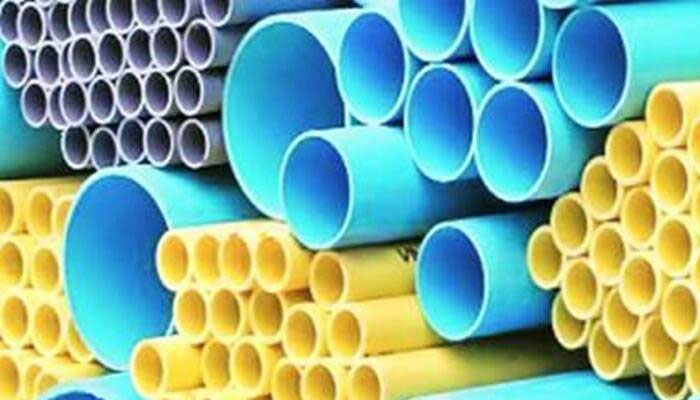Significant rise in plastic prices affects auto parts makers
KARACHI: Prices of plastic granule increased more than 50 percent during three months, jacking up cost of auto parts production and eroding margins of mainly small and medium vending companies, industry officials said.
Mashood Khan, former chairman of Pakistan Association of Automotive Parts and Accessories Manufacturers told The News that plastic granule is their major raw material, whose prices during last three months increased by more than 50 percent.
It comes with various rates, he said. A kilogram is available for Rs2,500, Rs3,000 to higher prices depending on its various categories. Due to an increase in the prices, the spare parts industry is suffering, as their orders are declining at higher rates and affordability becomes the issue.
Khan, who is a director of Mehran Commercial Enterprises said small and medium enterprises were going through the period of survival during the lockdown related to Covid-19, but the situation is not coming to normal for them as price of the major raw material is increasing.
“When lockdown was over, there were issues of shipping and logistics. The material was not available but we faced it. However, now prices of raw material are being increased by three to four times in a month,” he said. “From February 1 till mid of March, prices have increased thrice.”
Prices of imported and the locally produced raw materials are increasing. The small and medium enterprise sector mostly purchases the raw material from the local market and very few of them are imported. During the issues related to shipping line when ships were not arriving, raw material supply for plastic granule also got affected. Talking about the auto policy, Khan said the government had given licences to new 20 companies. Of which, around four big players have arrived. “Government objective was achieved successfully with their arrival, whereas, parts manufacturers have yet to get benefit from it.”
The new entrants are enjoying tax incentives and import the parts. “Local industry has to wait and show patience for some time,” he said. They will have to move towards the local industry for the localisation of parts once the tax incentive period is over. “Ultimately, you have to come towards localisation.”
He said Toyota’s Corolla has not lost the market share, as only 1.3 Corolla was closed and share of 1.8 remained intact in the market. Toyota Yaris replaced the 1.3 segment of Corolla and made its market. Both Corolla and Yaris’ volume showed that there was no decline in the sales. Despite of new arrival in the field, Yaris is using some local parts as well, he said while their benchmark is same as that of Corolla. According to industry sources, Corolla uses above 70 percent locally manufactured parts, second highest localisation after Suzuki’s Mehran, whose production was closed a couple of years ago.
-
 Mexico’s President Considers Legal Action Over Elon Musk Cartel Remark
Mexico’s President Considers Legal Action Over Elon Musk Cartel Remark -
 Prince William Hits The Roof With The Andrew Saga Bleeding Into Earthshot
Prince William Hits The Roof With The Andrew Saga Bleeding Into Earthshot -
 HBO Gives Major Update About 'Industry' Season Five And Show's End
HBO Gives Major Update About 'Industry' Season Five And Show's End -
 Donnie Wahlberg Responds To 'Boston Blue' Backlash: 'Nobody Was More Disappointed Than Me'
Donnie Wahlberg Responds To 'Boston Blue' Backlash: 'Nobody Was More Disappointed Than Me' -
 Jennifer Garner Gets Emotional Over Humble Career Start: 'It Makes Me Want To Cry'
Jennifer Garner Gets Emotional Over Humble Career Start: 'It Makes Me Want To Cry' -
 Princess Beatrice Told An Acquaintance That She ‘likes’ Jeffrey Epstein: Grim Verdict Drops
Princess Beatrice Told An Acquaintance That She ‘likes’ Jeffrey Epstein: Grim Verdict Drops -
 Late Katherine Short's Neighbours Give Insights Into Her 'peace Loving' Personality Post Suicide
Late Katherine Short's Neighbours Give Insights Into Her 'peace Loving' Personality Post Suicide -
 Fresh Details Of King Charles, Queen Camilla's US Visit Emerge Amid Andrew Investigation
Fresh Details Of King Charles, Queen Camilla's US Visit Emerge Amid Andrew Investigation -
 Iran 'set To Buy' Chinese Carrier-killer Missiles As US Forces Gather In Region
Iran 'set To Buy' Chinese Carrier-killer Missiles As US Forces Gather In Region -
 Prince Harry And Meghan Unlikely To Meet Royals In Jordan
Prince Harry And Meghan Unlikely To Meet Royals In Jordan -
 Hero Fiennes Tiffin Shares Life-changing Advice He Received From Henry Cavill
Hero Fiennes Tiffin Shares Life-changing Advice He Received From Henry Cavill -
 Savannah Guthrie's Fans Receive Disappointing News
Savannah Guthrie's Fans Receive Disappointing News -
 Prince William Steps Out For First Solo Outing After Andrew's Arrest
Prince William Steps Out For First Solo Outing After Andrew's Arrest -
 Jake Paul Chooses Silence As Van Damme Once Again Challenges Him To Fight
Jake Paul Chooses Silence As Van Damme Once Again Challenges Him To Fight -
 Google Disrupts Chinese-linked Hacking Groups Behind Global Cyber Attacks
Google Disrupts Chinese-linked Hacking Groups Behind Global Cyber Attacks -
 Four People Killed In Stabbing Rampage At Washington Home
Four People Killed In Stabbing Rampage At Washington Home




